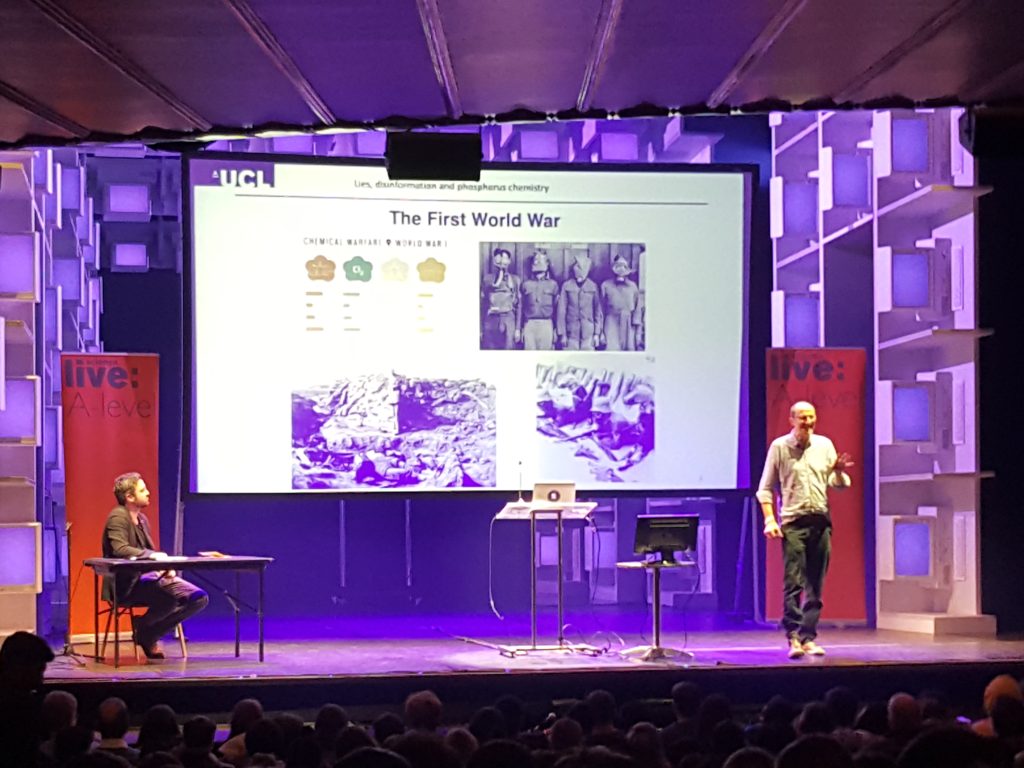On Tuesday I visited the Savoy Hotel as part of a trip conducted by the Brampton College Chemistry Department. The event, Science Live for A levels, took place in the Hotel’s auditorium where my fellow peers and I had the privilege of listening to several speakers, all of whom were distinguished chemists in their own right.
The day began with an interesting talk by Dr.Suze Kundu, an expert in the mysterious world of nano-technology. The lecture was cleverly designed in a way that built upon the secondary school knowledge we already had, and expanded our understanding of the topic. I learnt why nano-tech is becoming ever more significant and how simple carbon structures can improve our day to day lives. Fullerenes, for example, can be used like a capsule in drug delivery, targeting specific cancer cells and transporting the medicine directly to them.
She was followed by the well-respected Dr. Lucy Carpenter, the Head of Physical and Atmospheric Chemistry at York University, who presented to us the history of air pollution and explained ‘why it is worth fixing’. With the same number of people dying from air pollution as war today, it is obvious that her discussion was relevant and deeply important. Next came the world-renowned Professor Peter Atkins, who gave an insightful lecture on the basics of thermodynamics. In a very Oxbridge fashion, he calmly explained how the universe consisted of nothing, and always has done, tackling complex cosmology with charisma and humour. This was particularly useful as I am currently studying thermodynamics in class, so I now have a better conceptual understanding of what energy and entropy really are.
After lunch we had the pleasure of listening to Doctor Peter Wothers from St Catherine’s College in Cambridge, who gave an extensive chronology of the development of the Periodic Table. Who would have thought that behind the familiar classroom poster lives stories of romance, homicide and discovery; with passion and fluency he exposed to us the history of what is essentially Chemistry’s national emblem. Finally, almost straight off his bike, came the exuberant Professor Andrea Sella, an inorganic chemist at UCL. After a day of exploring the wonders of chemistry, I think it was important to hear the other side of science, what Sella describes to be ‘Chemist’s Dirty Secret’. The gradual development of nerve agents such as Zyklon-B from insecticides have led to some of the worst atrocities in human history, Sella reminded us that science should serve to better humanity and not to equip those who intend to harm it.
Throughout the day we also had the opportunity to hear advice from a senior examiner which of course was of immeasurable usefulness. Starting early, being organised and setting up the right environment for studying were a few of the strategies suggested to improve exam performance. Overall, I would say that I felt privileged to have listened to so many great scientists all at one time and I will now be able continue my course at Brampton with greater insight and understanding.
By Zaid.




